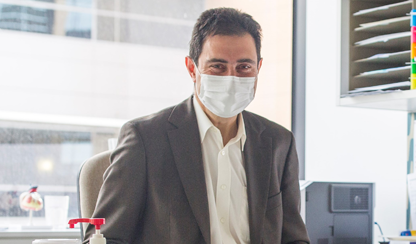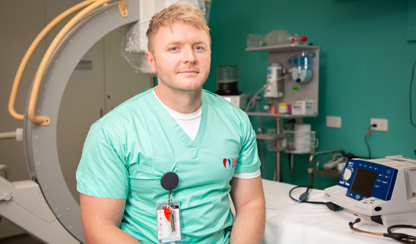03 June 2021
Media release

New Australian research has provided a window into how the COVID-19 pandemic has impacted on the lives of people with type 2 diabetes.
The most worrying findings, published in the journal Diabetic Medicine by Baker Heart and Diabetes Institute researchers, show a reduction in people accessing routine medical care.
Of the nearly 500 people with type 2 diabetes who took part in the survey, two in five reported cancelling necessary medical appointments and avoiding making new ones.
The findings relating to healthcare engagement showed:
- 43% who had an existing appointment with a community-based practitioner cancelled (e.g. general practitioner or allied health professional).
- 61% who had an existing day unit/hospital appointment cancelled.
- 39% of those who perceived a need for a new healthcare appointment avoided making that appointment.
- 32% of those who perceived a need to attend a hospital emergency department avoided doing so.
Evidence gathered since the start of the pandemic has suggested that people with diabetes who caught COVID-19 are more likely to experience severe symptoms from the virus, and are also more likely to be hospitalised or die due to COVID-related complications.
Head of the Institute’s diabetes complications research program, Professor Jonathan Shaw is also an endocrinologist who works in one of the country’s largest diabetes clinics. He and his team, including researcher Dr Julian Sacre, were in a unique position to evaluate the effect of the pandemic. They had already been tracking a group of almost 500 people with type 2 diabetes for over a year as part of the PREDICT study, which aims to understand the progress of type 2 diabetes and its complications.
“We were very lucky in Australia to avoid the high infection rates seen in other parts of the world, but in Melbourne particularly, we also faced some of the world’s strictest lockdown measures. Our team wanted to understand how this new-normal impacted on the health and wellbeing of people with diabetes,” Professor Shaw says.
He says the findings show ongoing support is essential to mitigate the negative impacts of the COVID-19 pandemic on adults with type 2 diabetes. “The data is also borne out by what we are seeing in our diabetes clinics every time we go into lockdown,” Professor Shaw says. “As soon a lockdown is announced, the phone starts ringing with people cancelling appointments. It’s concerning because there is the potential to miss important opportunities to treat emerging problems and pre-empt serious complications of diabetes.”
“In diabetes care it’s essential we have access to accurate and up-to-date information to help support our patients in managing their health, particularly at a time of added stress vulnerability,” Professor Shaw says. “Healthcare services will need to continue to adapt to maximise engagement with patients and ensure adequate monitoring of risk factors.”
Health, wellbeing and behavioural data were also assessed, and Dr Sacre says the results aren’t all doom and gloom.
“Although many people reported negative impacts of the pandemic on their quality of life, overall anxiety and depression levels stayed the same as pre-pandemic levels, and diabetes distress actually reduced,” he says. “Many people in the study were of retirement age, so may not have had the stresses of home schooling or job insecurity that others experienced. Nevertheless, it was very reassuring to see how many people coped well.”
“But it’s important to note that these data were collected during the first lockdown, so we don’t know if an extended or repeated period of restrictions may have had a greater effect.”
If you have type 2 diabetes and want to join the PREDICT study in Melbourne, visit https://baker.edu.au/predict.
For further information or to organise interviews please contact:
Tracey Ellis
T: 03 8532 1514
M: 0433 781 972
E: tracey.ellis@baker.edu.au





